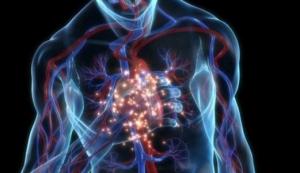By Tim Boyer G+
Do you ever have the feeling that something is not quite right in your chest? A feeling that is often described as a fluttering sensation of the heart like it is not beating as it should, or that you are unable to “catch your breath”? If so, then you are one of many who occasionally experiences heart palpitations.
A heart palpitation is an odd sensation you may experience in your chest, neck or throat that can be a result of the heart beating too hard, too fast, flutter-like, or actually skipping a beat or two. In most cases, a heart palpitation is benign and lasts only momentarily and usually resolves itself as quickly as it began.
In a recent episode of The Dr. Oz Show, Dr. Oz tells viewers that a heart palpitation is one of 3 signs and symptoms of a particular mineral deficiency. The other two signs and symptoms include muscle spasms and brain fog that is unrelated to fibromyalgia.
“Amazingly, most of you are not getting enough of this important mineral,” Dr. Oz tells his viewers. “A sign of potassium deficiency is actually heart palpitations. That’s when your heart is pounding and it skips a couple of beats…It happens for a lot of different reasons, but one of the common problems―and we see this in the hospital a lot as well―is that it is a potassium problem…most of us only get about half of the potassium we need,” says Dr. Oz.
Dr. Oz points out that taking a multivitamin pill may not be giving you the potassium protection you need because either the multivitamin may not include potassium or the dosage may be too low.
“The amount we need is 4,700 milligrams a day,” recommends Dr. Oz.
Here are 10 Remedies for Your Heart
To remedy a low blood potassium problem naturally, Dr. Oz recommends integrating any of the following potassium-rich foods daily into your meals to ensure that you are meeting your dietary needs:
• Bananas
• Oranges
• Sweet Potatoes
• Beet Greens
• Tomatoes
• Broccoli
• Dried Fruits
• Beans
• Fish
• Yogurt
However, just like with any other mineral—too much is too much. Overdoing it on eating foods rich in potassium―or taking too many potassium supplements or multivitamins a day – can result in a life-threatening condition called “hyperkalemia” or “high blood potassium.” When levels of potassium are too high, it can lead to an abnormal beating of the heart or cardiac arrest and then require emergency care.
While as mentioned earlier that the majority of the time heart palpitations are not a serious medical emergency and resolve on their own, you should be aware that your heart palpitations could be asign of an underlying medical condition including heart disease.
If the event is relatively rare, you should still be sure to let your primary care physician know that you do occasionally experience heart palpitations so that he or she can determine whether the symptoms are due to anxiety, too much caffeine, exercise-induced, or side effects from prescribed medications or OTC medications such as cold and cold syrups as well as nutritional supplements.
Image Source: Courtesy of PhotoBucket
Reference: Dr. Oz Show


























































